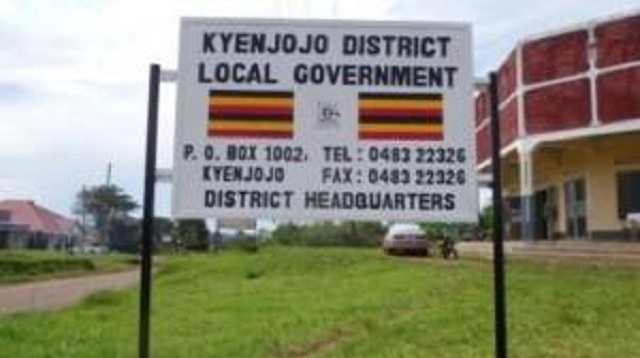
Kyenjojo, Uganda | THE INDEPENDENT | Residents of Bufunjo Subcounty in Kyenjojo District have raised concerns over the deteriorating state of roads in the area.
According to residents, the state of the roads is hampering transportation, limiting access to essential services, and threatening their livelihoods.
Speaking during a community baraza organised by Ride Africa in partnership with Twaweza Uganda at Bufunjo Subcounty headquarters on Thursday, the residents highlighted the severe challenges caused by deep potholes, broken bridges, and the general lack of road maintenance.
The residents reported that several key roads have become nearly impassable, making it extremely difficult to transport agricultural produce and limiting daily movement. They cited the Karambi–Kahombo, Katoma–Kikazi–Bukongwa, Kifuka–Kambo bridge, and the Rwenjaza–Bukongwa bridge.
Yofesi Kabagambe, a resident of the area, said the poor road conditions have greatly hindered the transportation of farm produce to markets, affecting family incomes. He adds that school-going children are also struggling to reach their schools due to the bad state of the roads.
Another resident, Michael Christmas, noted that the bad roads have disrupted businesses, made it hard to access health services, and worsened the already difficult lives of community members.
Pulicalipo Kobusheshe, the LCIII Chairperson for Bufunjo Subcounty, acknowledged the poor state of the roads and attributed the delays in repairs to limited resources and a lack of road maintenance equipment.
However, he assured residents that funds would be allocated in the next financial year to address the issue.
Grace Tumuranzye, the Deputy LCV Chairperson for Kyenjojo District, said that the 1 billion Shillings received annually from the Road Fund is inadequate to rehabilitate all the roads in the district.
She, however, encouraged communities to carry out voluntary road maintenance through burungi bwansi, where possible, to help preserve existing roads while they wait for government intervention.
Sylvia Katusiime, a Project Officer at Ride Africa, said the baraza provided a valuable platform for dialogue between the community and public officials.
She explained that such engagements allow citizens to directly ask questions, offer feedback on service delivery, and hold leaders accountable.
Katusiime emphasised that these forums strengthen public participation in planning processes and enable duty bearers to report directly to the people they serve.
***
URN
 The Independent Uganda: You get the Truth we Pay the Price
The Independent Uganda: You get the Truth we Pay the Price





